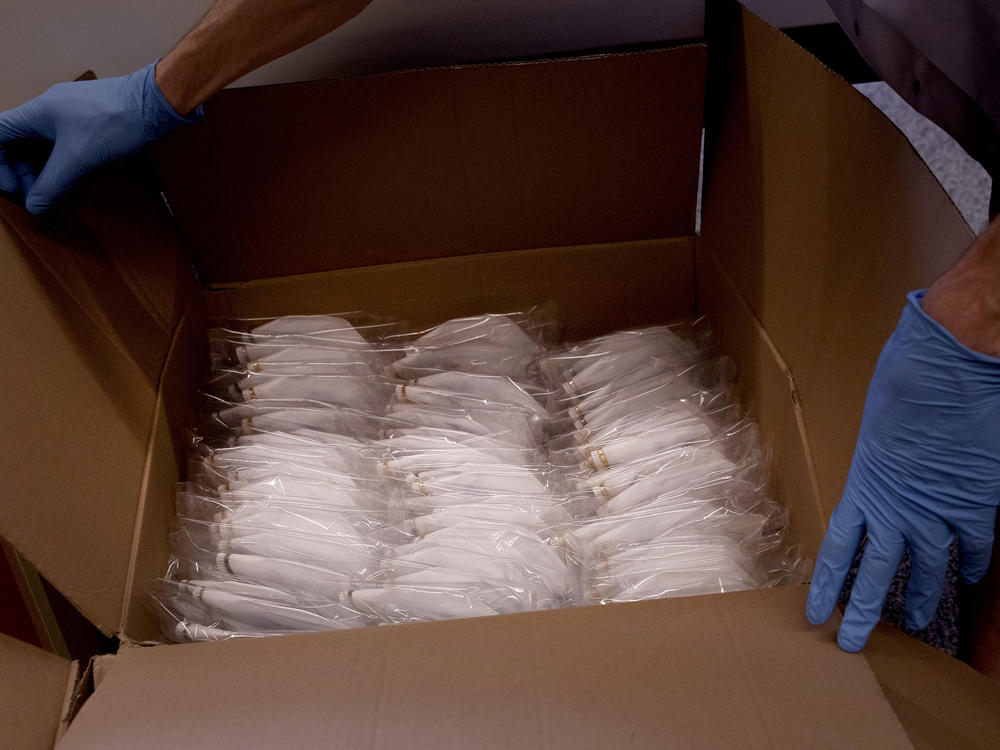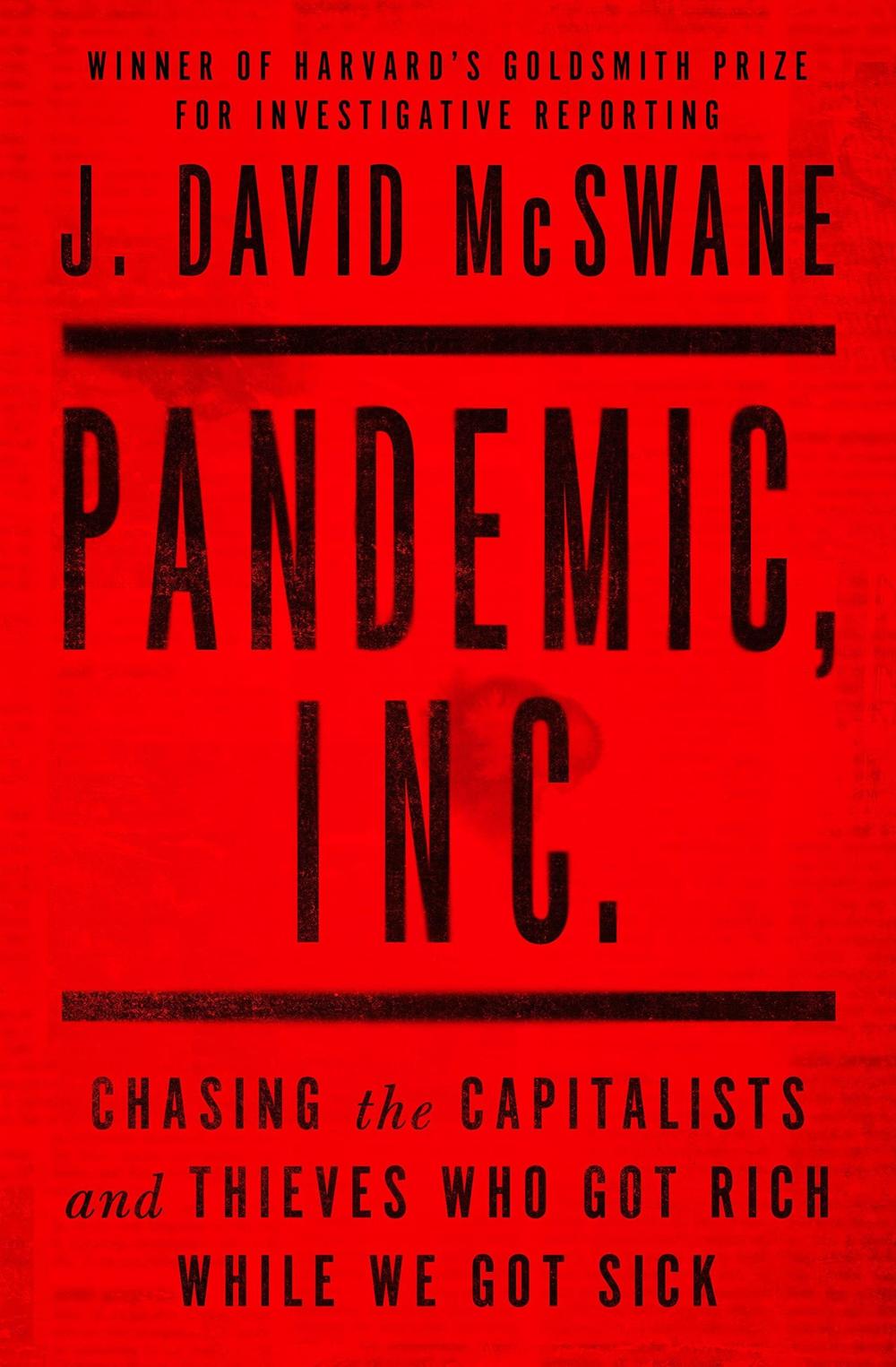Section Branding
Header Content
'Pandemic, Inc.' author says financial predators made more than $1 billion off COVID
Primary Content
When the COVID crisis hit in 2020, the federal government needed far more N95 masks and other protective equipment than it had — so it began awarding contracts to companies promising to provide them, often at a steep mark-up. J. David McSwane, a ProPublica reporter and author of the new book Pandemic, Inc: Chasing the Capitalists and Thieves Who Got Rich While We Got Sick, says a shocking number of those companies had no experience in providing medical equipment.
Indeed, when McSwane and other reporters started combing over the data, they found that two months into the pandemic, the federal government had already handed out more than a billion dollars to companies that had never before had a government contract. "They were just throwing contracts out left and right," he says.
Many were run by people with a history of fraud allegations – all of them available in public records if anyone had bothered to check.
"The federal government wanted to keep the recipients of those loans a secret, which is just absurd ... So we, along with some other news organizations, actually had to sue to get it," McSwane says. "And, lo and behold, once we did get it and started analyzing it, we found fraud all over the place."
McSwane's new book is a colorful account of the many ways unscrupulous operators profited from the nation's health crisis, and ways the government failed to protect the public from financial predators.
Interview highlights
On the scale of fraudulent loan applications
We really don't [know the scale] yet. As with almost every relief program that was created as a result of the pandemic, speed was prioritized above all else. Money was flying out the door with very little incentive to vet people's claims. So really, we're playing catch up. ...
The Paycheck Protection Program had this sort of quirky trend that my colleagues at ProPublica first reported, of hundreds of fake farms that don't exist, like orange groves in Minnesota and dairy farms in Florida. Things that don't make sense. ... Just sort of obviously fake companies. My colleagues went through the business filings, traced all these things back, and found these [businesses] don't exist. But money was paid out, and it's unclear to whom. So federal prosecutors are going to be chasing this type of fraud for many years.
On one contractor he met who had received a government contract to procure N95 masks when they were in short supply
Robert Stewart Jr. is a contractor I sort of stumbled upon in those early weeks [of the pandemic]. ... I noticed he'd gotten a really sizable deal – $34.5 million dollars with the Veterans Administration, which oversees the largest hospital network in the country. And he just had no footprint. There was no evidence that he had previously had a federal contract. ...
At this point, the Trump administration was sort of trying to catch up after weeks of negligence, and we just saw money flying out the door. And I just had a suspicion that they hadn't actually vetted any of these contractors. And we'd seen some anecdotal evidence of that, and I decided just to call him and ask him what's going on. And he said, "I'm the real deal. I got a shipment of 6 million masks and I'm delivering them to the VA, and I'm going to be on a private jet tomorrow. And I said, "Well, that's really interesting. Would you mind if I tag along?"
On the contractor's confession that he didn't have the N95 masks
I boarded the plane and we're literally lifting off. I say, "Hey, I really am curious. How did you manage to get masks when it seems no one's able to get them and such a large quantity?" And he says, "Well, actually, I don't have them. Somebody's bought them out from under me. I've been up all night making phone calls, trying to find a new shipment." And he's due to deliver the masks in the next day.
On the contractor's inability to deliver on his contract, and how it reflects a broader failure
Robert Stewart Jr. was not paid for the masks that he didn't provide. And that was the federal government's response was, well, we can give out contracts all we want, because we're not paying out unless it's delivered. He was, however, paid a lot of money through the Paycheck Protection Program.
This is not the first time a contractor has overpromised or wasn't able to deliver. It happens all the time. But the point is the federal government was so ill-prepared that all rules were thrown out the window, and our national strategy became: We're just going to hand out contracts to whomever. We're going to throw them all over the place and we're going to see what comes back. And that had some pretty devastating effects. ... You've got states and cities and hospitals competing for these supplies. The brokers know that the federal government has decided to spend $6 a mask for this particular deal, and that just drives the prices up for everybody.
On whether he thinks fraud was inevitable
You've got to think of the government as this giant cookie jar. Everyone's trying to get a piece of it. So when it was announced that there was going to be emergency spending — which means there is no vetting or the traditional competitive bidding — I knew right away, this is going to be something. Because this is huge, and there's so much money, and there's so many people trying to get it. So just instinctively, I knew there was going to be lots and lots of fraud.
But we were in a jam. And I don't make the argument that there's no higher morality than federal acquisition regulation. But I think the real question is: Why did we allow ourselves to be in this position where we're essentially reliant, our national well-being depended on mercenaries ... these people we had to hire to get things we didn't know we needed, didn't have? And the answer that it didn't have to be this bad.
Had we followed some of the recommendations laid out by various government organizations and even private industry to beef up the Strategic National Stockpile to make sure we have these things, in those initial weeks at least it wouldn't have been so chaotic. And we might have been able to put our money into smarter things. And one hopes that having sort of stitched together all of this madness, all of this waste, all this fraud, maybe we can rewrite the blueprint and make sure we're not in this position the next time we face a pandemic, which scientists say is inevitable.
Sam Briger and Joel Wolfram produced and edited this interview for broadcast. Natalie Escobar and Seth Kelley adapted it for web.
Copyright 2022 Fresh Air. To see more, visit Fresh Air.
Bottom Content


